

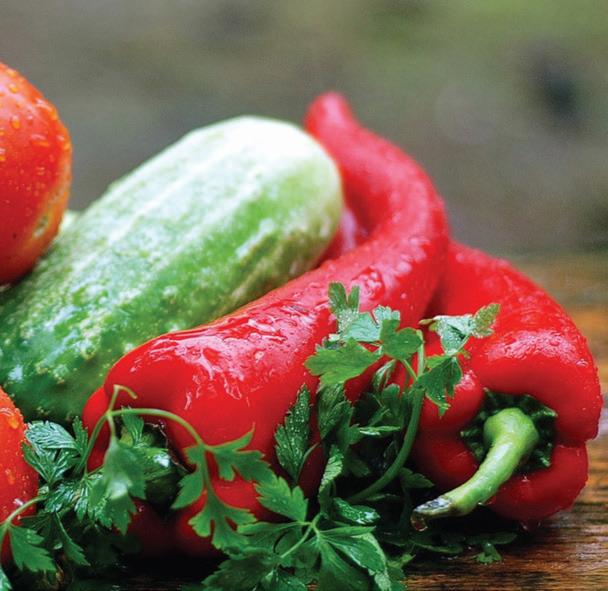
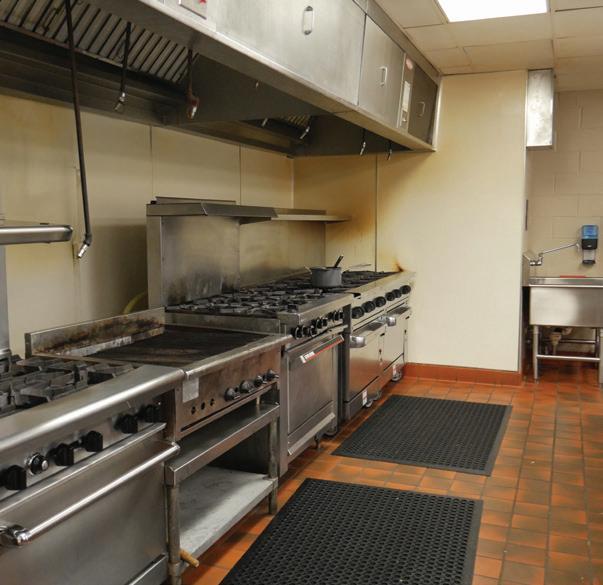
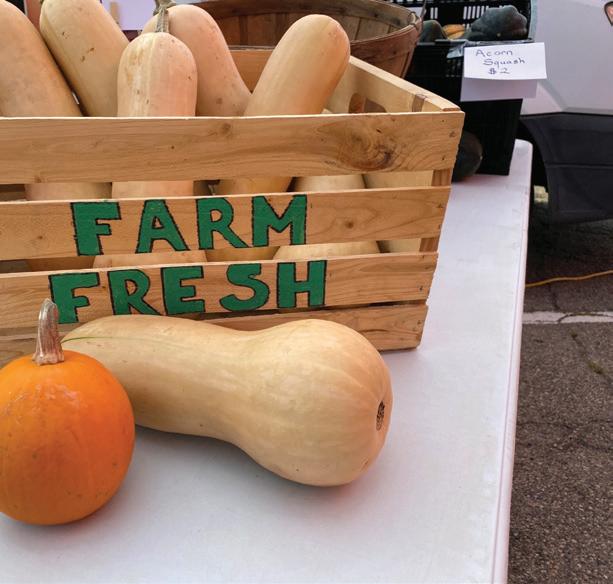


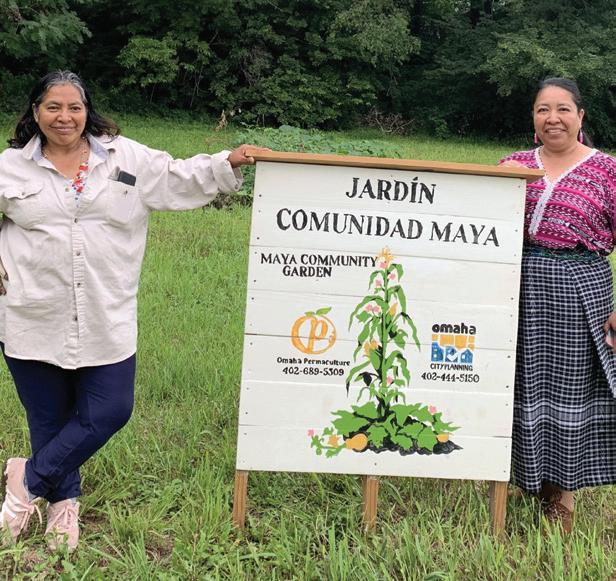















Our mission is simple: to showcase the inspiring success stories and hardworking food businesses thriving across Kansas. From farmers to chefs, blending heritage with innovation, we celebrate the creativity and determination that powers the Kansas food industry. In every issue, you’ll find stories of perseverance, ingenuity, and collaboration, showing the power of local food to bring people together and uplift entire communities.
Launched in 2023 and funded by the USDA, 12 Regional Food Business Centers are working across the country. They are designed to support food and farm businesses by providing technical assistance, coordinating efforts to solve shared challenges, and building capacity through the Business Builder Grant program. The Heartland Regional Food Business Center (Heartland Center) serves Iowa, Kansas, Missouri, Nebraska, Oklahoma, and northwest Arkansas. Within Kansas State University, K-State Research and Extension’s Local Foods Transdisciplinary Team is serving as a Heartland Center key partner.
Each issue of Kansas Food First will highlight key players and producers in the Kansas food system. This first issue will explore the initiatives that our Food Systems Entrepreneurial Resource Navigators have been developing to support Kansas businesses. We’ll feature entrepreneurs’ stories, highlight valuable resources to help other food businesses thrive, and introduce the impactful work of other key partners and collaborators across the state of Kansas.
In future issues, the Heartland Center team will celebrate successes across Kansas. We will be turning to members of our Local Foods Transdisciplinary Team, partners, collaborators, and entrepreneurs to share their stories. By learning from one another, we aim to accelerate success within our state’s food system and strengthen our communities.
If you are interested in starting a food business, supporting local farmers and producers, or discovering your next favorite Kansas-made product, you’re in the right place.
Jenny Doty, raised in Haysville and a proud K-State graduate, brings experience from starting and managing the Lenexa Farmers Market and teaching Value-Added Food Production, guiding future food entrepreneurs with her expertise.

Quinlan Carttar, a graduate of the University of Kansas, uses their experience as a former New York City culinary producer and incubator kitchen manager to inform the support they provide to food entrepreneurs growing their businesses. Their past work also includes hospitality operations and food media.

“Food is our common ground. We learn about traditions, history, and even values as we share our food through our business.
- Kansas Food Business
Kansas Food First is dedicated to lifting up food businesses. Send questions or ideas to heartlandrfbc@ksu.edu.

Inthe world of food entrepreneurship, incubator kitchens have emerged as a vital resource for aspiring business owners who want to create, test, and grow without the burden of setting up their own commercial kitchens. Diane Kriwiel, the founder of The Shared Kitchen in Wichita, exemplifies how these spaces can nurture both individual dreams and community-driven innovation. Her journey from a family cook to a community mentor for local food entrepreneurs illustrates the transformative power of shared spaces and collaborative entrepreneurship.
Diane’s culinary journey started with her love for cooking and a practical need to feed her large family. As a mother of twelve, she became a skilled, high-volume cook, and soon, friends and neighbors began to ask her to prepare meals for their events. Eventually, her culinary reputation grew to the point that she even found herself catering weddings—a step she had not initially envisioned. “I’d sworn I’d never do it,” she laughs, recalling one of her first big events, “but the mother-of-the-bride was so persuasive.”
That first event ignited someting in Diane, and realizing that her cooking could serve a larger audience, she launched a business in 2011 to provide home-cooked meals to busy families. As she continued building a reputation as an outstanding caterer, her services became more popular, and she began to expand. More recently she started catering for other businesses which required a dedicated, licensed kitchen space. “I told my husband, ‘Let’s just put a sink, a stove, and a hand sink in that corner,’” she jokes, but her vision for a shared kitchen quickly expanded. Soon, The Shared Kitchen was born, offering not only commercial kitchen space but also mentorship and resources to other budding food entrepreneurs.
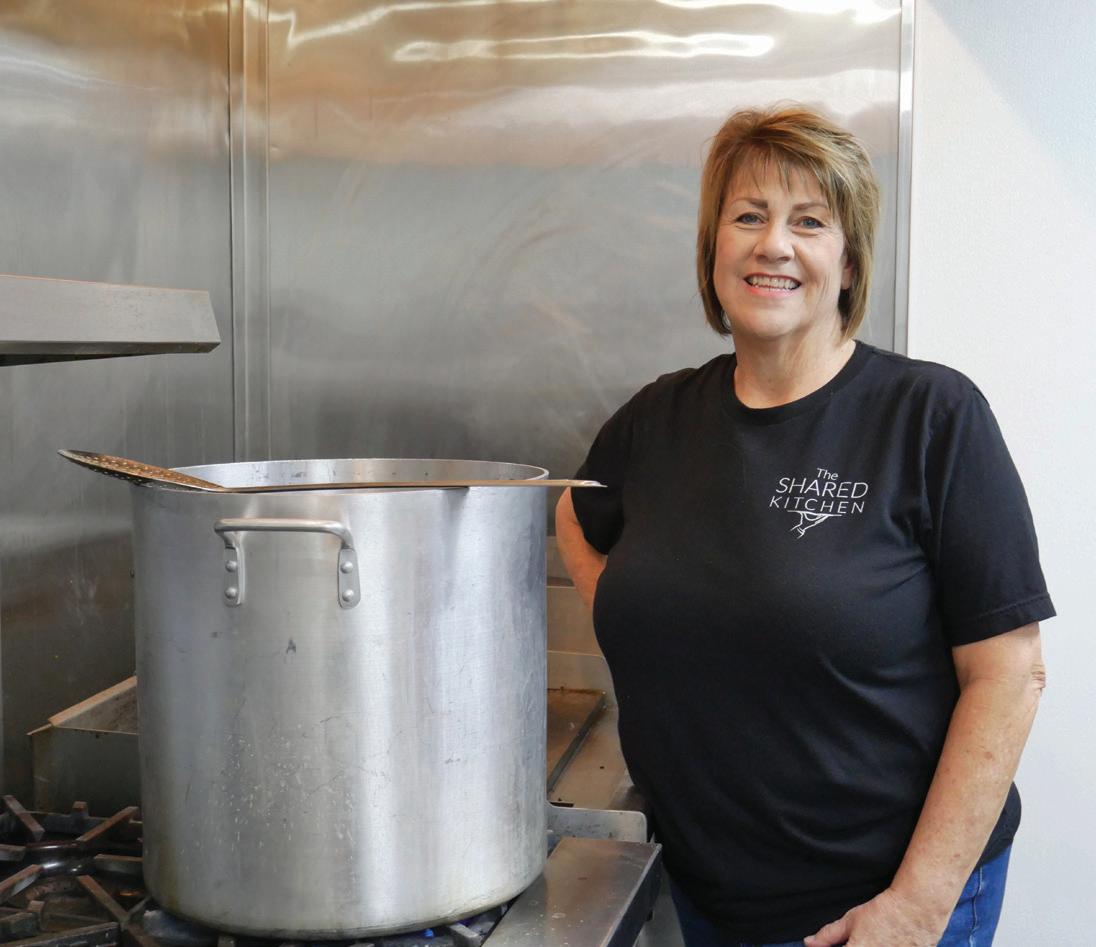
Today, The Shared Kitchen operates as a community and business hub, welcoming a diverse array of chefs and food artisans who bring their unique talents and flavors to the table. Diane works with an eclectic mix of people, including bakers, candy makers, caterers, and even entrepreneurs specializing in international cuisines. “We have people from all backgrounds and culinary traditions,” she says. “Today, we had a caterer who specializes in African food, a man making freeze-dried candy, and another creating flavored mustards.”
Her journey from home cook to kitchen incubator has been full of surprises, challenges, and joy, but she wouldn’t have it any other way. “I love the hustle,” Diane said, reflecting on her clients’ determination and passion. In her own way, she’s paving the path for others to realize their culinary dreams, one shared meal at a time.

Incubator kitchens are also known as ghost, commercial, shared or commissary kitchens. The Shared Kitchen is revolutionizing food entrepreneurship by offering key advantages:
Incubator kitchens provide affordable access to licensed, fully equipped spaces, allowing food businesses to meet regulatory standards without the high costs of building their own facilities. By minimizing these financial barriers, incubator kitchens give entrepreneurs the freedom to test and grow their business concepts without significant upfront investments. These facilities are popping up in urban and rural spaces alike, to fill the need for commercial kitchen space in all types of communities.
Many incubator kitchens provide more than just physical space. Incubator managers often act as a mentor to clients, helping them navigate licensing requirements, budgeting, and profit margins. As Diane is mentoring her clients she said, “I feel part landlord and part cheerleader,” she said. “I really want to be part of their success and support them through the challenges of building a food business.”
Incubator kitchens bring together a community of entrepreneurs who can learn from one another. While clients at The Shared Kitchen may only overlap for a few hours each day, Diane notes how mutual respect and camaraderie blossom. “They really support each other,” she says, emphasizing the sense of community that defines her kitchen.
Navigating food safety regulations can be overwhelming, especially for new business owners. Many kitchen managers support their clients through the process. Diane praises the Kansas Department of Agriculture’s (KDA) focus on education. “They genuinely want these businesses to succeed,” she says, noting how KDA inspectors help new businesses understand and comply with regulations rather than penalizing them for mistakes.
Incubator kitchens established by private enterprises, universities, local governments, and non-profits play a vital role in driving local economic growth in Kansas. Leaders of these organizations recognize that supporting food entrepreneurs not only boosts the local economy but also introduces unique, diverse food options that enhance the community.
If your community is interested in starting an incubator kitchen, the Heartland Regional Food Business Center staff are here to help. We offer technical assistance and can connect communities with the resources needed to successfully establish a shared kitchen space tailored to local needs.
From family-owned farms to artisanal food makers, Kansas is home to a rich variety of small businesses that capture the essence of Kansas in every bite. In this spread, we spotlight five local food and farm entrepreneurs whose passion for quality, sustainability, and community is redefining the culinary landscape.
If you know of a food or farm business that should be highlighted, reach out to us at heartlandrfbc@k-state.edu!
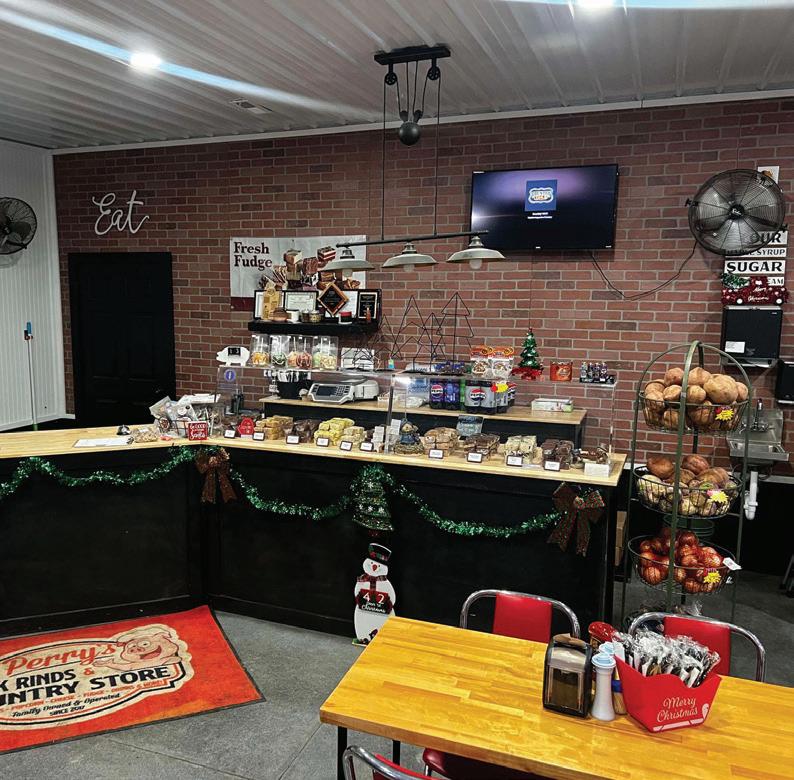
Perry’s Pork Rinds was created by husband-wife duo Thaddeus and Kelly Perry, who are dedicated to their craft by producing various pork rind flavors in small batches since 2017. Living and working in Bronson, the Perrys faced the challenges of limited grocery options in their area. In response, they opened their country store to serve community needs better and expand their pork rind business into wholesale. Their store offers produce, pantry items, deli goods, baked goods, and a full kitchen with made-to-order burgers, tacos, sandwiches, salads, pizza, and more. They also source pork, chicken, and beef from local farmers, which are processed locally and sold in their store.
Keenan Stultz is at the beginning of his business journey of developing his goat dairy farm. His goal is to open up an on-farm store selling his products made with goat milk. Excitingly he was awarded Reserved Grand Champion and the title of Premier Sable Exhibitor at the Kansas State Fair.

Woolly Farms Foundation - Scoop Troop: Dedicated to enhancing the lives of young adults with diverse needs and abilities, Scoop Troop offers meaningful employment opportunities. Based in Jefferson County, young adults are gaining hands-on experience by managing an ice cream shop and learning the art of ice cream making.
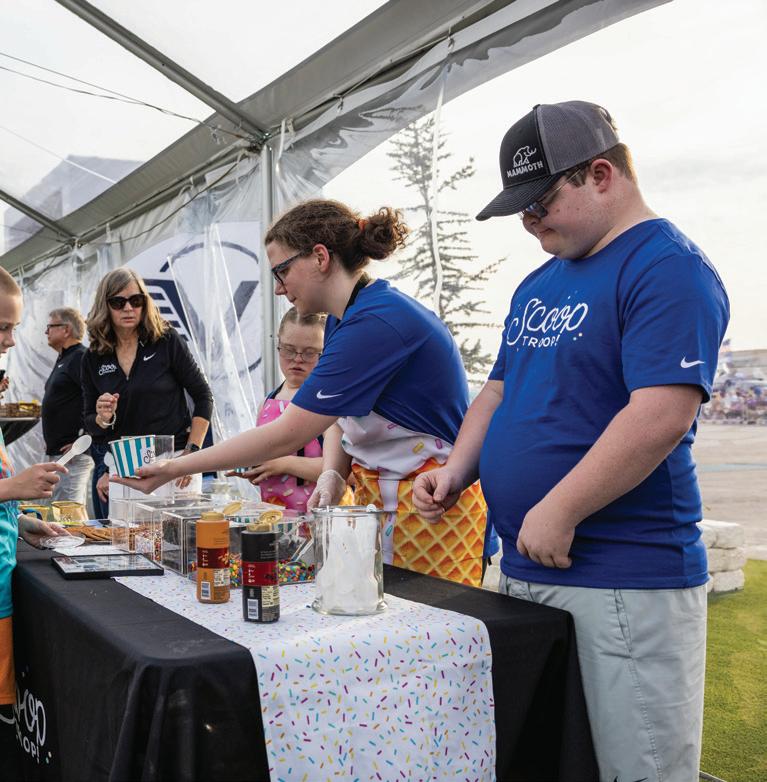

Geary County hosts two farmers markets: the Geary County Farmers Market and the Junction City Main Street Market. These markets, managed collaboratively by Junction City Main Street and Geary Community Farmers Market operate twice a week from May through September. They feature a diverse range of local food producers and artisans. Each market offers unique programs such as kids’ activities, Produce Prescription initiatives, Supplemental Nutrition Assistance Program (SNAP), and special events celebrating farmers, nutrition and health.
Driven by their passion for raising cattle and sharing their locally raised product with southeast Kansas, Phil and Anita Clubine began taking their meat trailer on the road. During farmers market season, they sell their beef at three markets in Caney, Fredonia, and Independence, Kansas. Throughout the rest of the year, they arrange meet-up locations in the communities they serve to meet their customers’ needs.

Kansas Key Partners
K-State Research and Extension
Kansas Rural Center
KC Healthy Kids
The Food Conservancy

Kansas Collaborators
Common Ground Producers and Growers Wichita, KS
Kansas Black Farmers Association Nicodemus, KS
Kansas Department of Agriculture Manhattan, KS
Kansas Farmers Union McPherson, KS
Kansas Small Business Development Center Topeka, KS
Kansas Value Added Foods Lab Manhattan, KS
Shop Kansas Farms Potwin, KS
The Kansas City Food Hub Overland Park, KS
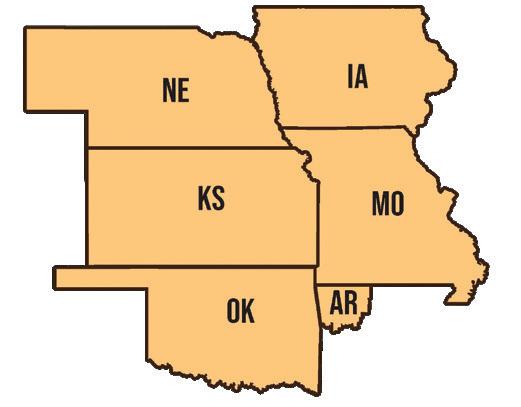
The Heartland Regional Food Business Center (Heartland Center) is one of 12 regional food business centers established by the U.S. Department of Agriculture in 2023. The purpose of the Heartland Center is to help farm and food enterprises start up, grow, and make supply chain connections to serve the growing demand for local and regionally produced food. In Kansas, K-State Research and Extension along with Kansas Rural Center are leading our groups of collaborators to meet the Heartland Center goals. We want to make you aware of the resources and technical assistance available to businesses you may already be working with.
• Heartland Center meets with entrepreneurs to determine business needs.
• Refers entrepreneurs to Kansas Small Business Development Center or other appropriate collaborators for technical assistance.
• You can refer entrepreneurs to receive information about grant benefits. To do so have your entrepreneur contact heartlandrfbc@k-state.edu.

Technical assistance, or TA, is an essential form of support that the Heartland Center provided to farm and food entrepreneurs to ensure that they can benefit from the right resources at the right time on their business building journey.
Our team of TA providers are able to meet with you to learn about your business and provide direction to start or improve your business. Two of our providers also have financial resources to help get you started. The Kansas Value Added Foods Lab can provide up to $400 to get food testing and labeling. Through From the Land of Kansas, Kansas food businesses can get up to $200 of business support with marketing, e-commerce, logo design, website consultation and UPC codes.
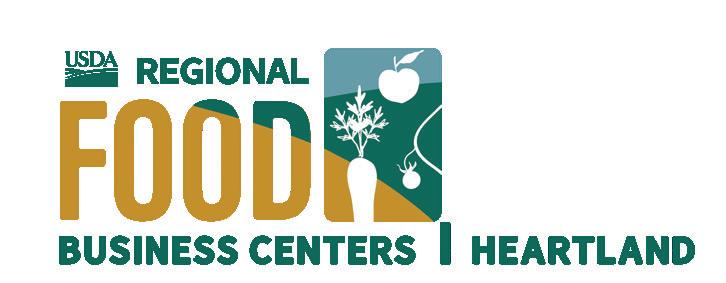
heartlandfoodbusiness.org | heartlandfoodbusiness.org/contact | heartlandrfbc@k-state.edu
Learn about organizations collaborating with the Heartland Center to help meet the needs of farm and food based businesses across the state.
The Kansas Small Business Development Center serves as the state’s advising resource for small business owners and aspiring business owners. We are here to help at any stage of the business lifecycle from start to transition. We provide confidential one-on-one advising with trained advisors who adhere to a strict code of professional ethics. We also provide education, technical assistance, and referrals to resources.
Due to our grant funding, we are able to provide a majority of our services at no charge to our clients. We receive support from the U.S. Small Business Administration, State of Kansas, institutions of higher education, economic development organizations, and local and regional partners so that we can help grow the Kansas economy through helping small businesses be successful and sustainable.
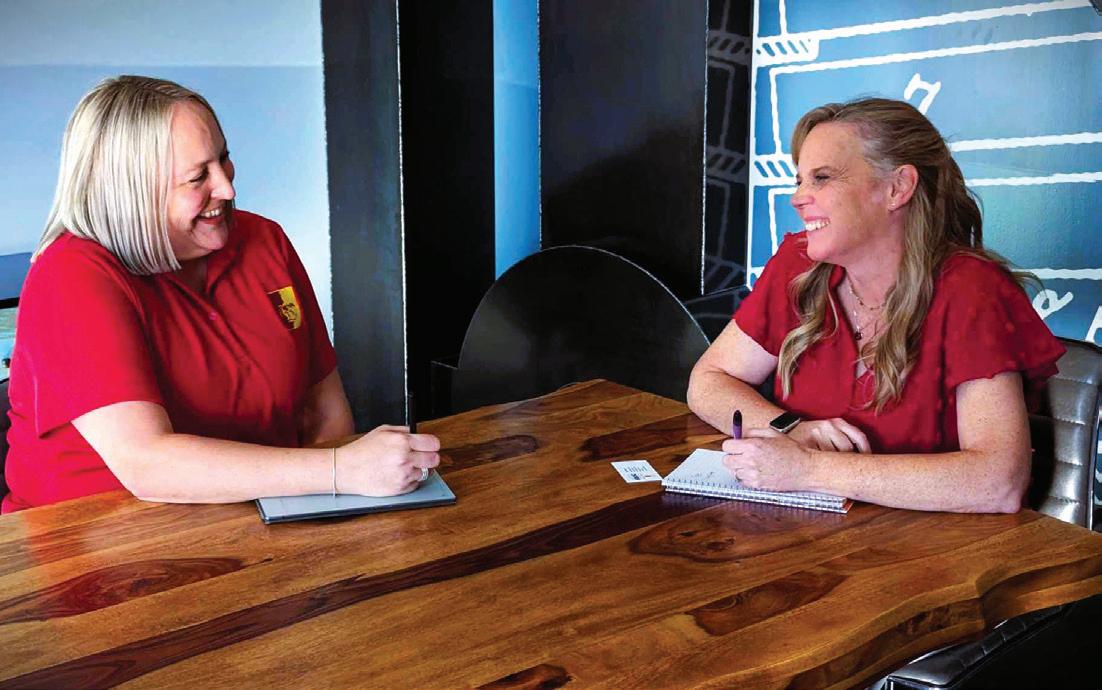
Shop Kansas Farms provides farmers, ranchers, and growers interested in direct-to-consumer sales with branding, digital marketing, social media marketing, sales, communication strategies, writing, business development, and exposure to more than 168,000 consumers.
Shop Kansas Farms understands entrepreneurs have limited time and experience when it comes to the business essentials for growth and sustainability. Our organization brings the experience and expertise to help entrepreneurs grow their business. There is not enough time in the day for them to do it all, so we bring to them the extensive experience and expertise to help them grow their business.
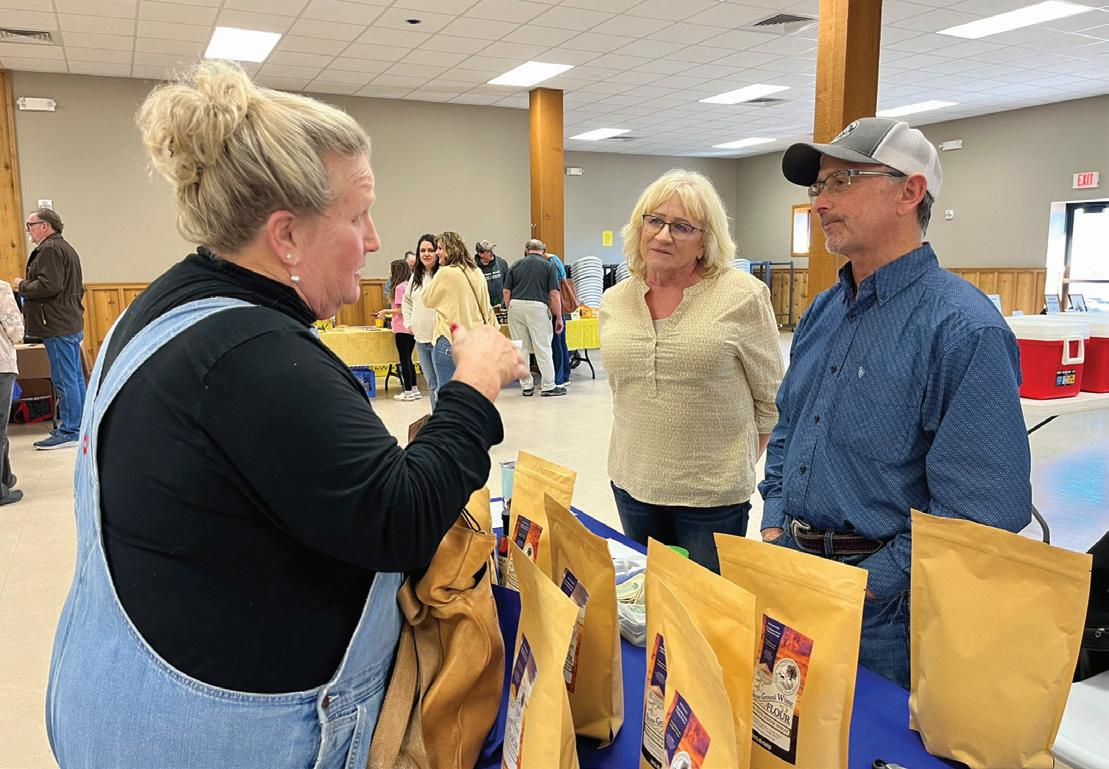
Our consultations with clients help identify their needs and how Shop Kansas Farm can assist them in building strategies to implement over time. To learn more, go to shopkansasfarms.com or join the Facebook group called, “shopkansasfarms”.
The Kansas Value Added Foods Lab is located within the Department of Animal Sciences and Industry at Kansas State University. Small food businesses that sell food products direct-to-consumer are our primary clientele. Foods regulated by the FDA, such as barbecue sauce, salsa, pickles, are examples of products we receive. Our testing includes pH, water activity, sodium percentage Brix, moisture and other tests depending on the food product.
We can also create Nutrition Facts labels and ingredient statements from formulas and ingredients used. Our Meat Value Added service also provides services for small meat processors to comply with USDA regulations. Educational opportunities include Better Process Control School and HACCP training. We are supported, in part, by the Kansas Department of Agriculture and the From the Land of Kansas program.
The Kansas Department of Agriculture and From the Land of Kansas work with all types of businesses from across the state of Kansas, from specialty crop growers to value-added processors, and everything in between. From the Land of Kansas primarily assists with marketing strategies and promoting businesses through the From the Land of Kansas website and social media platforms.
The Ag Marketing Department of KDA advises businesses with logistical questions pertaining to licenses and inspections. They also connect businesses in Kansas with their local economic developers and makes them aware of resources and grant opportunities to help them grow their business.
The Ag Marketing Team and From the Land of Kansas team work closely to support Kansas farmers, ranchers, and agribusinesses.
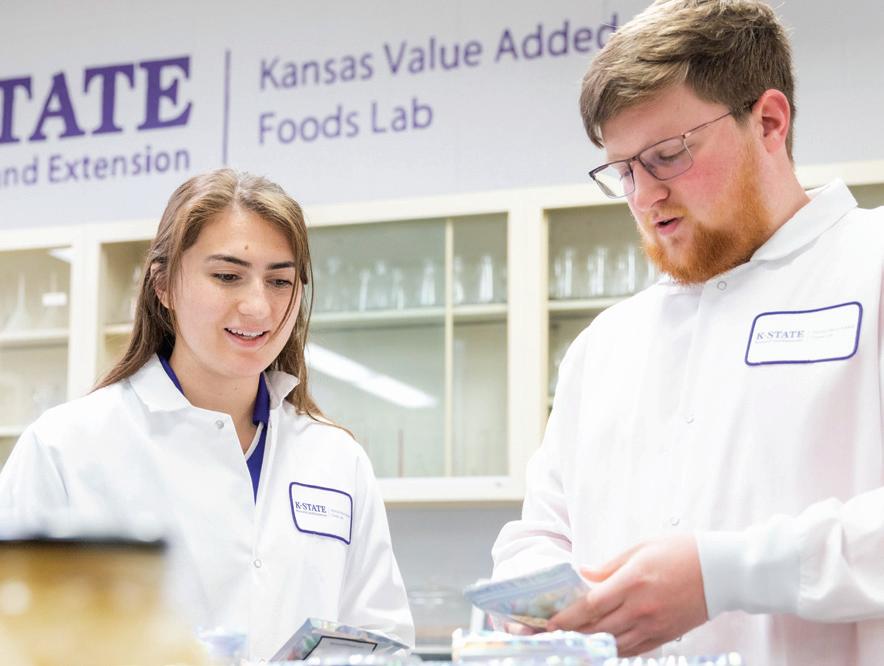
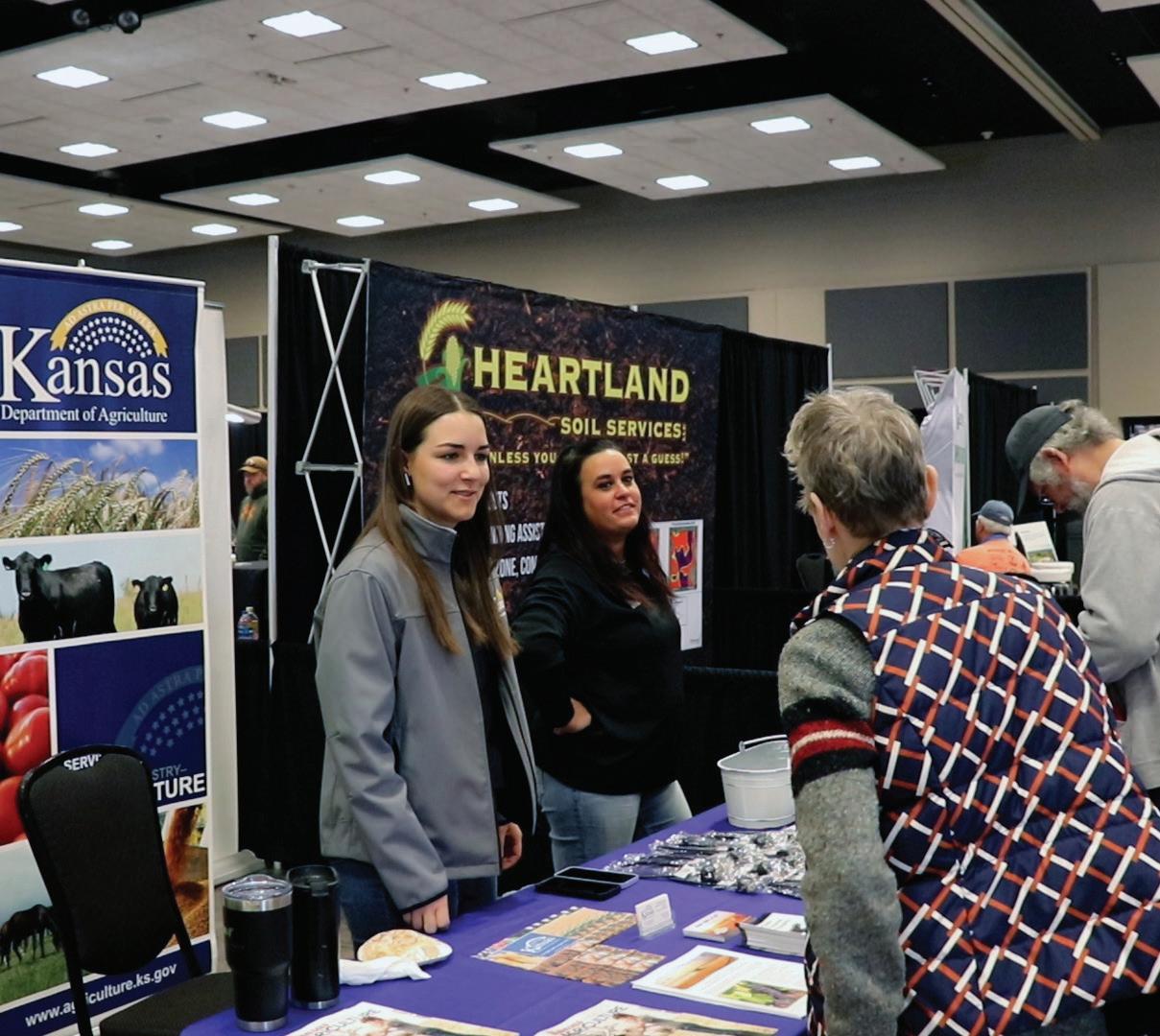
Kansas farm and food businesses are encouraged to apply for the Business Builder Grants offered by the Heartland Regional Food Business Center (HRFBC). This program helps entrepreneurs expand operations, create jobs, and boost access to local products.
The Business Builder Grants provide $5,000 to $50,000 per project. The next round is expected to open early in 2025.
Eligible businesses include:
• Retail food outlets
• Farmers/producers/ranchers
• Food and farm cooperatives
• Value-added processors
• Aggregation and distribution businesses
• Food hubs
• Farmers markets
• Non-profits
Projects should focus on food after it is harvested until it gets to the fork, which could include:
• Website creation or online stores
Marketing expenses
Feasibility studies
• Packaging Special-purpose equipment (e.g., cold storage, bottling, delivery vehicles)
• Personnel costs related to project activities
Technical assistance is available through K-State Research and Extension and the Kansas Rural Center, offering:
Project Planning: Define impactful projects.
• Food safety and state regulations: Connect with experts.
• Business Support: Access mentorship, marketing strategies, and financing advice.
• Application Guidance: Navigate the grant process with expert help.
Reaching out to these partners can improve your chances of success.
Visit the HRFBC website, www.heartlandfoodbusiness.org, or contact your local K-State Research and Extension office for details. Applications open in January 2025—don’t miss this chance to grow your business!
The impact that the Heartland Center has had in Kansas goes beyond the funding promised with the Business Builder Grant Program. Heartland staff have provided information and resources to food and farm entrepreneurs across the state in an effort to support and strengthen small, mid-size, diverse, and historically underserved communities. Highlights include:
Businesses that received Heartland Technical Assistance (TA) included producers, processors, food hubs and aggregators, farmers, and distributors. New businesses made up 39% of TA recipients, and 61% self-identified as already established. January - December 2024
Women entrepreneurs made up 70% of all clients that the Heartland Center served in Kansas in 2024. Heartland is committed to serving historically underserved communities, including women entrepreneurs. We are proud to see such strong representation.
In the first round of Business Builder Subawards, 479 applications were submitted across the Heartland Region. Kansas made up an impressive 26% of the total, with 124 submissions.
August - October 2024
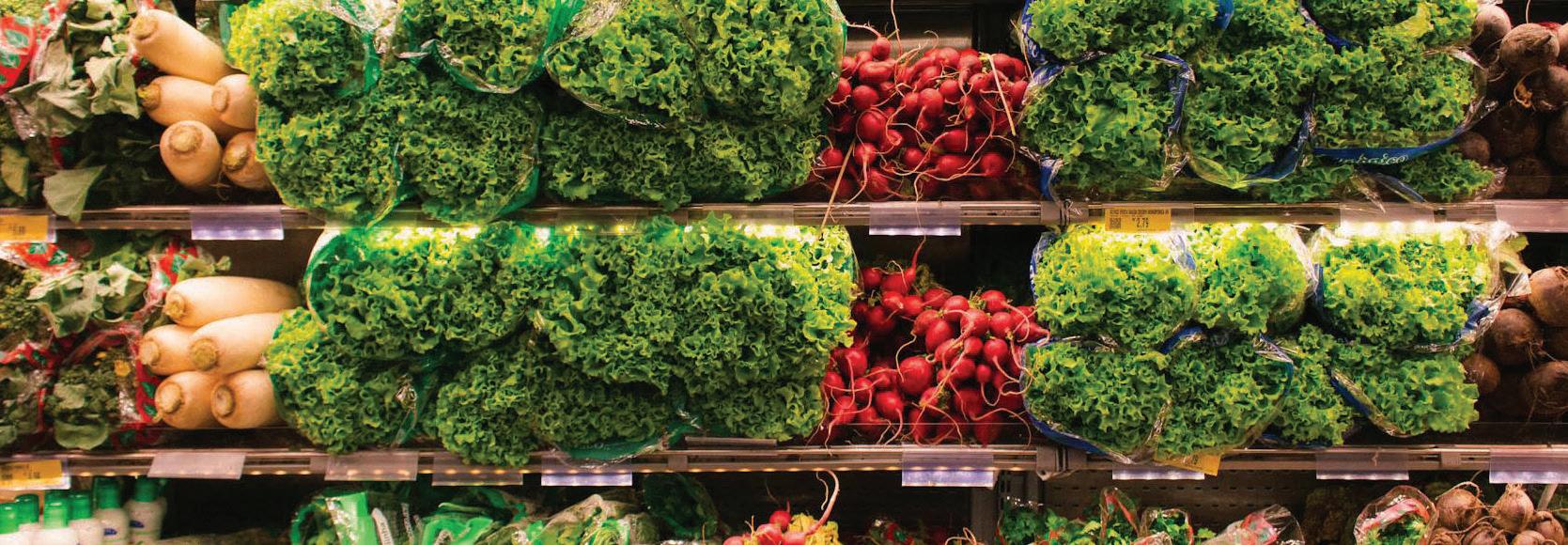
Check out these QR codes for the events listed below and for more programming to be announced in 2025!

News from the Heartland Regional Food Business Center
Round 1 of Business Builder Grants Award Notification - Expected by February 2025
The Heartland Center plans two more rounds of funding to open in 2025.
Visit heartlandfoodbusiness.org for more information.
These workshops are an opportunity for producers and small food businesses to learn more about selling their products through direct-to-consumers sales and other local market opportunities.
Manhattan:
Friday, January 31, 2025; 9 a.m. to 3 p.m.
Wichita:
Saturday, February 1, 2025; 9 a.m. to 4 p.m.
Olathe:
Friday, February 7, 2025; 9 a.m. to 3 p.m.
Chanute:
Friday, February 21, 2025; 9 a.m. to 3 p.m.
Hays:
Friday, February 28, 2025; 9 a.m. to 3 p.m.
Garden City:
Friday, March 28, 2025; 9 a.m. to 3 p.m.
For Local Food System Partners, Farmers and Food Businesses
Monday, February 10, 2025
Tuesday, February 11, 2025

Shop Kansas Farms:
Douglas County
Saturday, March 29, 2025; 9 a.m. to 3 p.m.
Kansas Small Business Development Center (KSBDC)
Hiring Your First Employee - Tuesday, February 4, 2025
Startup and Start Right - Tuesday, February 11, 2025
The Power of Pinterest - Thursday, February 27, 2025
Social Media Analytics - Thursday, February 20, 2025
Manage Your Own Social Media - Thursday, March 13, 2025
Build Your Brand On Social Media - Thursday, March 20, 2025
Business Resiliency Bootcamp
March 14, 2025 - 8:00 am to 3:30 pm CDT Free
KSBDC The Kansas Small Business Development Center is offering a Business Resiliency Bootcamp in your area! The three workshops will target strategies for financial management, thrifty marketing, and using AI tools.
Held virtually on Zoom and open to anyone across the state of Kansas that is interested in learning more about local food projects, organizations, and opportunities across the state. The town halls are held at 11 a.m. on the last Wednesday of January, April, July, and October.
K-State Research and Extension
Douglas County 2110 Harper Street
Lawrence, KS 66046

Kansas State University Agricultural Experiment Station and Cooperative Extension Service
K-State Research and Extension is an equal opportunity provider and employer.